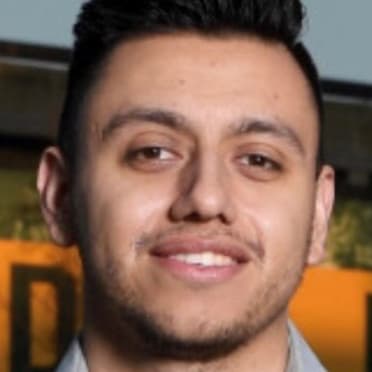Get to know Nick Kurtz, A's No. 4 overall pick
OAKLAND -- Nick Kurtz quickly familiarized himself with the Coliseum on Monday. After signing his first professional contract as the No. 4 overall pick by the A’s in the 2024 MLB Draft, the first baseman out of Wake Forest took grounders and bashed multiple home runs into the second deck as he participated in pregame workouts with some of his future teammates.
There is a high level of excitement surrounding Kurtz and the possibility of him making a quick ascension to the big leagues -- similar to Jacob Wilson (the A’s No. 1 prospect and No. 49 overall) -- if he can perform at the high level the organization expects him to in the Minors. Set to begin his pro career this week, here’s a little more about Kurtz:
Wake Forest has been touted as a baseball factory for its vast technology available. How did playing there help prepare you for this next step?
Kurtz: I’m lucky in that way that I picked a school where we have the pitching lab. We have biomechanics. We have all this data and a full analytical team. I think I’m one of the lucky ones who kind of has a head start on all that stuff. Being able to understand the information that they’re putting in front of you. Being able to use different technology to understand stuff in my swing or different preparation for pitchers and game planning every single day, that’s something that I’m kind of used to already and something I know. I think I will have a little bit of an advantage because of that, coming from a prestigious school like Wake Forest and all that they have.
You were a two-time all-region honoree basketball player in high school. Did playing multiple sports help you in baseball?
Kurtz: I think playing multiple sports always helps in your main sport eventually. There’s some things in basketball you can’t do on the baseball diamond. During games in baseball, you’re never face-to-face with a guy one-on-one, but I think that’s the same way a pitcher versus a batter is. Basketball gets you ready for all that stuff. The fans are right there in your face during packed basketball games, and you can hear everything they’re saying. I kind of learned at a young age to let that stuff go and not let it affect me. It never has. Stuff like that, you can’t learn in baseball all the time. You kind of have to go through other sports. Also, workout stuff. You’re not going to run for hours at a baseball field, but you do it in basketball every day. I think a bunch of that stuff has prepared me for baseball and made me better.
What are your strengths as a hitter?
Kurtz: My swing decisions and my pitch recognition [are two] of my better things. I do hit the ball to all fields well. I can backspin a baseball. I can hit with power. But my ability to swing at the right pitches and take my walks and get in those advantage counts where I can really do damage, I think that’s what makes me a very good hitter.
Were you always such a disciplined hitter who took a lot of walks? Or is that something you developed in college?
Kurtz: I’ve always been doing it. … I always felt like I walked a lot. When it really came into play, my freshman year at Wake Forest, I batted leadoff for the first time. My role wasn’t to be the middle-of-the-order bat. I was a freshman and just trying to stay on the field, so my role was to get on base. Batting leadoff, work a walk or do anything to get on base. Another part is I hate striking out. I hate it. I take it really personally when I do strike out. My goal was always not to strike out. Over the years, I’ve had to sacrifice some of that for more home runs and more power. I think that’s kind of the way baseball is going. At the same time, I feel like I should always be around a one-to-one [strikeout-to-walk] ratio, and I was a little better than that in college. Now, things will get a little more difficult. But that’s always the goal.
